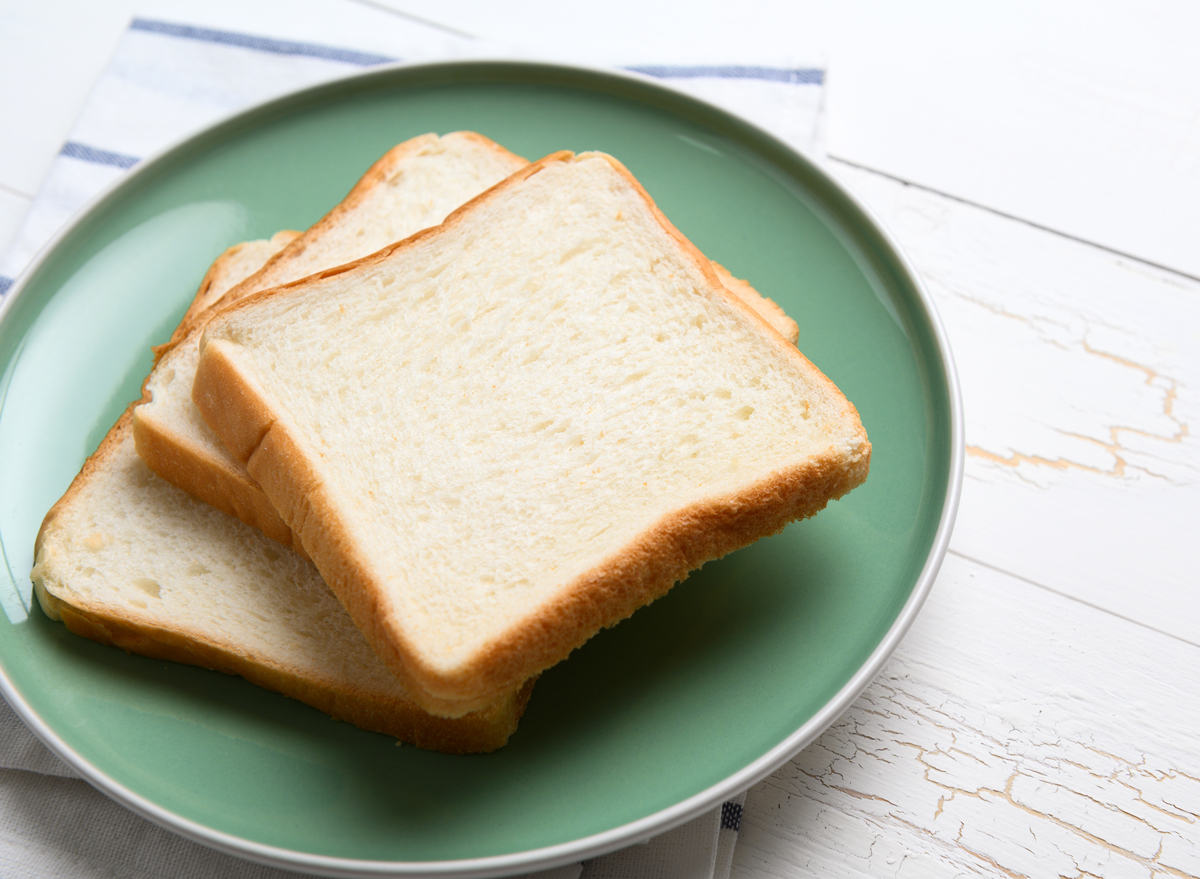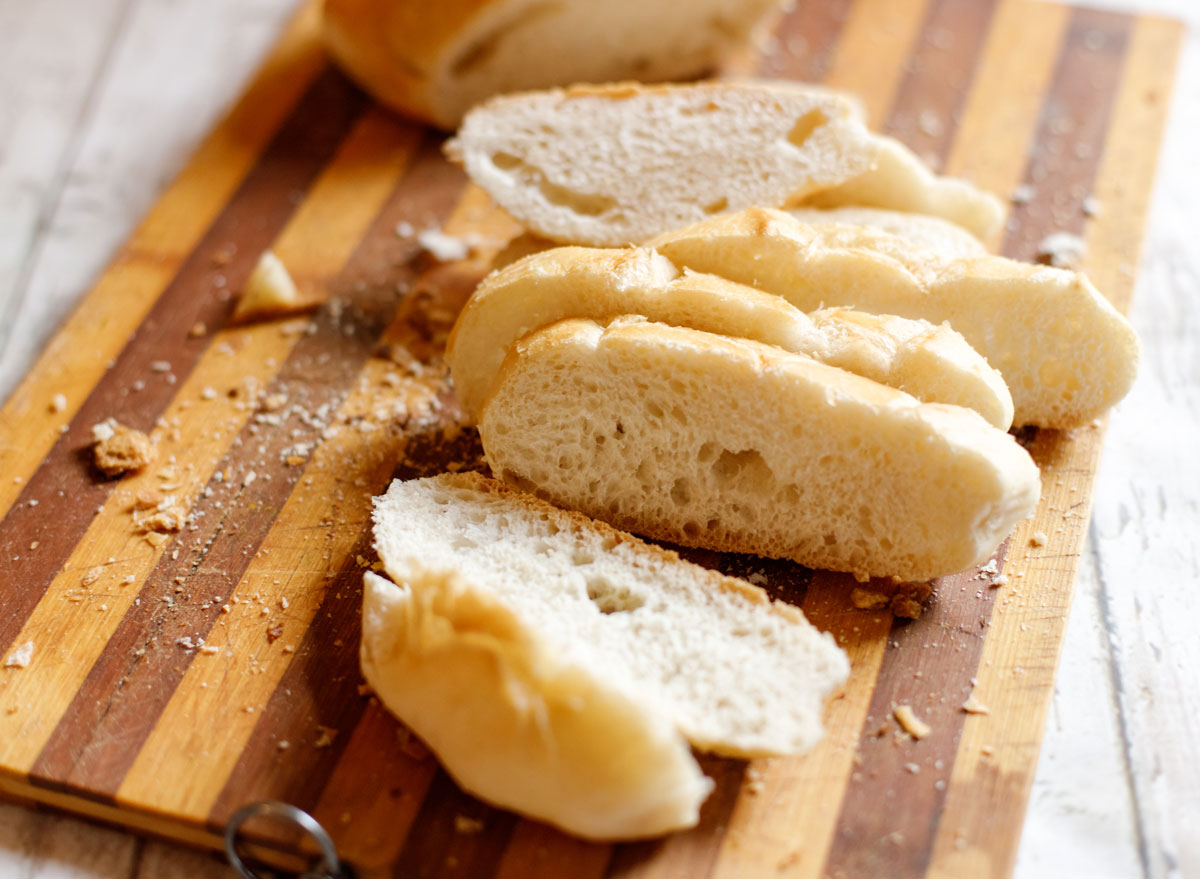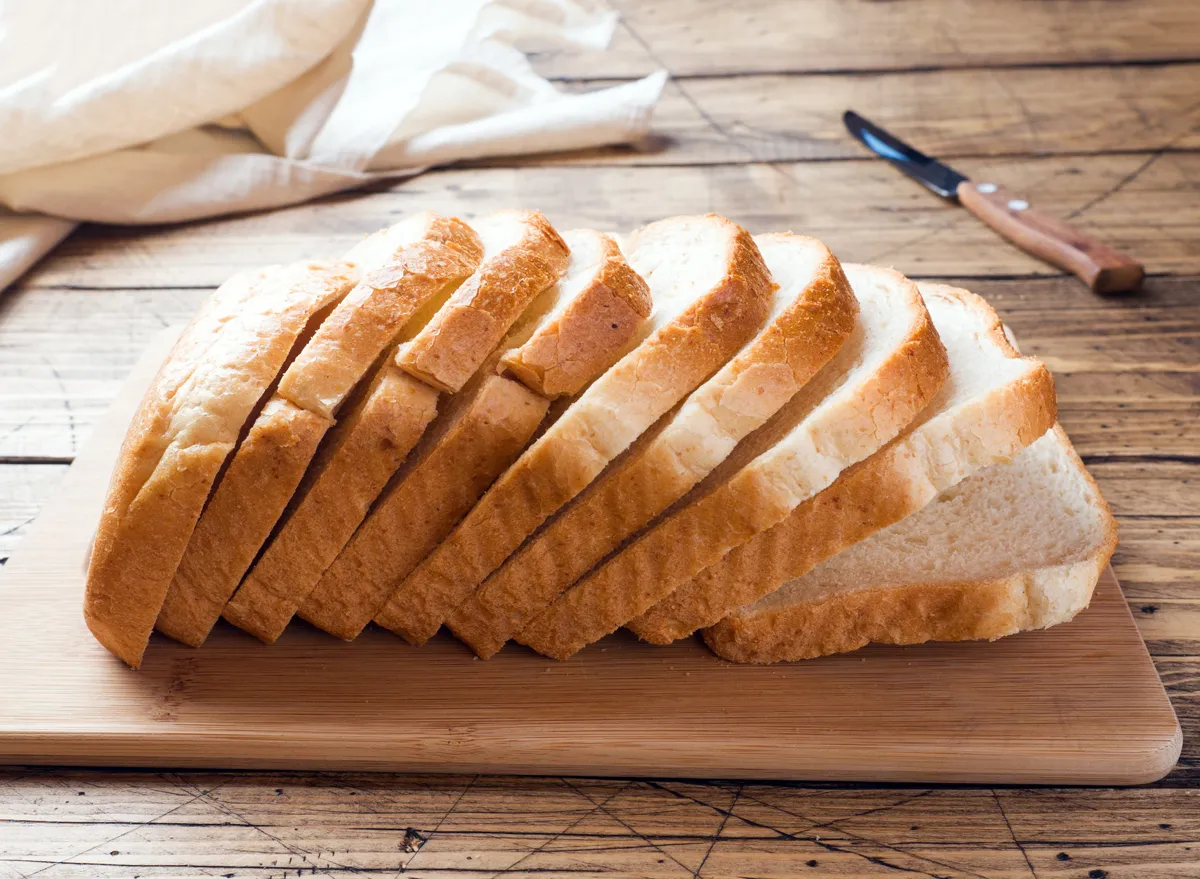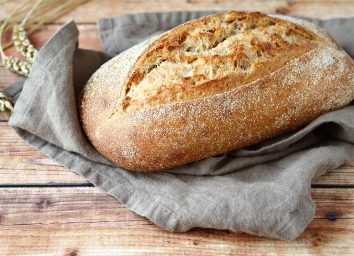Surprising Ways Eating White Bread Affects Your Body, Says Science

Have you ever wondered about what happens to your body when you have a ham and cheese on white bread? What about when you toast up a slice of white to eat alongside your breakfast? Or how about when you simply butter up a roll with dinner? For decades we’ve been told that white bread is bad for us, but how bad is it, really, if we’re eating it at all of these meals!? We combed through multiple studies to find out exactly what goes on in your body when you bite into white bread and how that can affect your health long-term. Read on, and for more on how to eat healthy, don’t miss 7 Healthiest Foods to Eat Right Now.
Your blood sugar will skyrocket.

White bread is a high-carb food. In fact, it’s so high carb that there’s very little else in it! According to data published in the journal Diabetes Care, white bread has a glycemic index (GI) of 75, making it rank very high on the glycemic index, as the highest rating you can go is 100—which is for pure glucose. The glycemic index is a measure of how drastically a food can make your blood sugar rise. For comparison, whole grain bread has a GI of 53 and high-fiber foods like chickpeas rank at 28! (Related: Surprising Side Effects of Eating Chickpeas, According to Science.)
According to Harvard, recurring blood sugar spikes from eating high-glycemic foods can increase the risk of type 2 diabetes, heart disease, and obesity.
You may gain weight.

Eating more high-GI foods like bread has been shown to lead to weight gain and increased risk of diabetes whereas diets that contain fewer high-GI foods and moderate levels of good-quality complex carbs can help reduce body weight and control glucose and insulin metabolism.
You may experience brain fog.

Feeling like you’re struggling to find the right words? Your toast may be the trouble. According to a Journal of Alzheimer’s Disease study, among 1,230 individuals between ages 70 to 89, those with the highest intake of carbohydrate-rich foods, like bread, had nearly twice the likelihood of developing cognitive impairment or dementia compared to those who ate fewer carbs.
You’re still going to feel hungry.

No healthy fats, no protein, no fiber? No fullness. White bread is devoid of satiating macronutrients that serve to shut off your hunger hormones, which can leave you feeling like you need to eat more to satisfy your appetite. For example, a study published in the journal Appetite found that participants who ate white bread consumed 500 more calories at their next meal compared to those who had whole grain bread. To put white bread into context, we can look at another study that determined how satisfied a food could make you feel after eating it. White bread was their baseline with a score of 100%, eggs got 150%, apples are 197%, and oatmeal was 209%. Add that to the pile of reasons you should be eating more oatmeal!
You may get some much-needed nutrients.

White bread isn’t all bad. Although white bread is highly refined and stripped of many of its natural nutrients, manufactures do add some of these nutrients back in along with others, including iron, folic acid, riboflavin, thiamine, niacin, and sometimes calcium, according to FDA regulations. For example, a 2-slice serving of Wonder Bread actually contains 30% DV calcium and thiamin; 20% DV riboflavin; and 15% DV vitamin D, folate, iron, and niacin. While these are essential nutrients and can do your body good, that doesn’t mean you should rely on white bread as your main source of them. Make sure you’re eating a balanced diet that’s rich in these Healthiest Foods You Should Be Eating Every Day, According to Experts.








